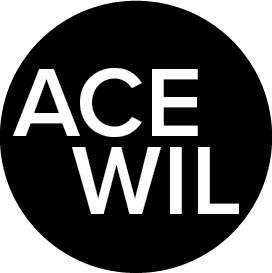Due to COVID-19, WIL students across the province have had to make the transition to working from home. It’s a difficult time for WIL students, many of whom are not able to work from home, are unsure about if they should return home not, or suddenly find themselves with unexpected financial hardship. For those students ACE-WIL has put together a COVID FAQ for students and employers. All the information that we know at this time about helping students and employers through the pandemic is available there. It also links to the COVID-19 information pages of all of ACE-WIL’s member institutions. For those of us fortunate enough to have jobs we can continue to perform from home we have the #WILFromHome Series. The #WILFromHome series shows how students and their supervisors are overcoming the challenges presented by working from home.
One such student is Lauren Frost. Lauren is the Communications and Campus Engagement Assistant for University of Victoria (UVic) Co-op and Career. Lauren deals with communications and marketing campaigns for career-related events on campus at UVic. Lauren has worked from home for various part-time positions in the past, which has eased her transition to working from home, but she has never experienced something quite like the COVID-19 pandemic.
Fortunately for Lauren and the rest of the Campus Engagement team, the transition to working from home has been relatively smooth. She already had a workspace set up in her home for doing coursework which has been helpful. But with all on-campus events cancelled due to COVID-19, there has been some shifting of priorities.
“My role has definitely changed since UVic began holding classes online and my team started working remotely. A huge part of my job is to engage students with co-op and career-related content and events. Following the advice of the BC Provincial Health Officer, any events I was working on were cancelled before transitioning to remote work. As well, during this unique time, many students have shifted their priorities, which has therefore shifted my priorities. My previous weekly tasks of sending out e-newsletters and creating social media content are, for the time being, no longer a large part of my role. Instead, I am working on equally important projects that were just more difficult to get around to in the past. For example, I’ve had the opportunity to work on projects related to improving the accessibility of our web content, which has been a super rewarding experience!”
Lauren’s supervisors have aided her in the transition to working from home, particularly in setting up a routine and means for the team to communicate with each other and continue their work. One of Lauren’s supervisors, UVic Senior Communications Officer Joy Poliquin, said:
“We’ve reprioritized Lauren’s work portfolio to focus on more communications-related projects and planning for future events. We’ve also added some new projects that involve research for the potential need to move to virtual events down the line. Since she’s been working with us for a while, we’ve also asked her to develop more robust onboarding tools for future students. We’ve tried to use this unexpected situation to tackle some organizational projects that were on the back burner, which will be really helpful in the long run.”
One of the greatest difficulties that working from home poses is maintaining one’s mental health. Being cooped up at home with no certainty about when things will go back to normal can be very taxing. We asked Lauren about how she handles that:
“What has helped me is trying to keep my routine as similar as possible to what it was before. This means getting dressed in the morning (ok, maybe half-dressed), brushing my teeth and starting work at the same time I normally would. Instead of going to gym at lunch, I dust off the old dumbbells, turn on a workout video and turn my living room into a gym class. If I feel the need to be social on my coffee breaks, I have a chat with my partner. Finally, I make sure I actually take breaks and “leave work” when I would normally leave.
“It can be easy to lose work-life balance when the physical distance between “work” and “life” has disappeared. Since we don’t know when this will end, I try to be as present as possible and enjoy the perks of working from home and appreciate the way the world has slowed down a little bit. I am hopeful that when the pandemic has passed, we as humans will be able to recognize the positive impacts of slowing everything down and making accommodations for those who need it. Perhaps this means taking the opportunity to rethink the way we treat the planet, or maybe using our newfound remote-working skills to make the workforce more accessible to those who face barriers in physical workspaces.”
